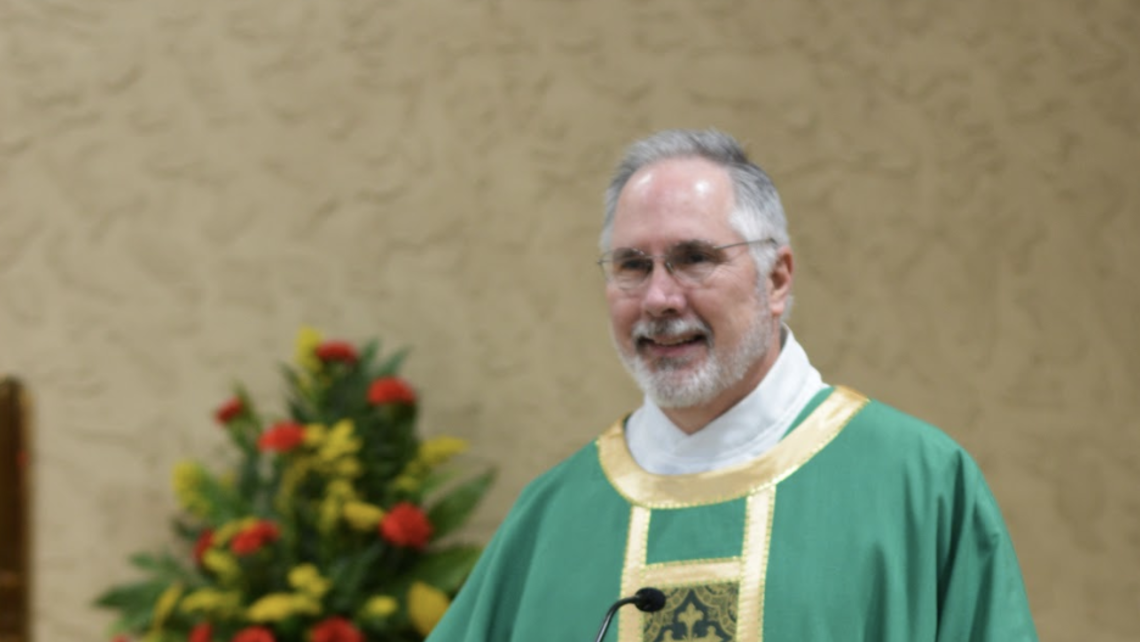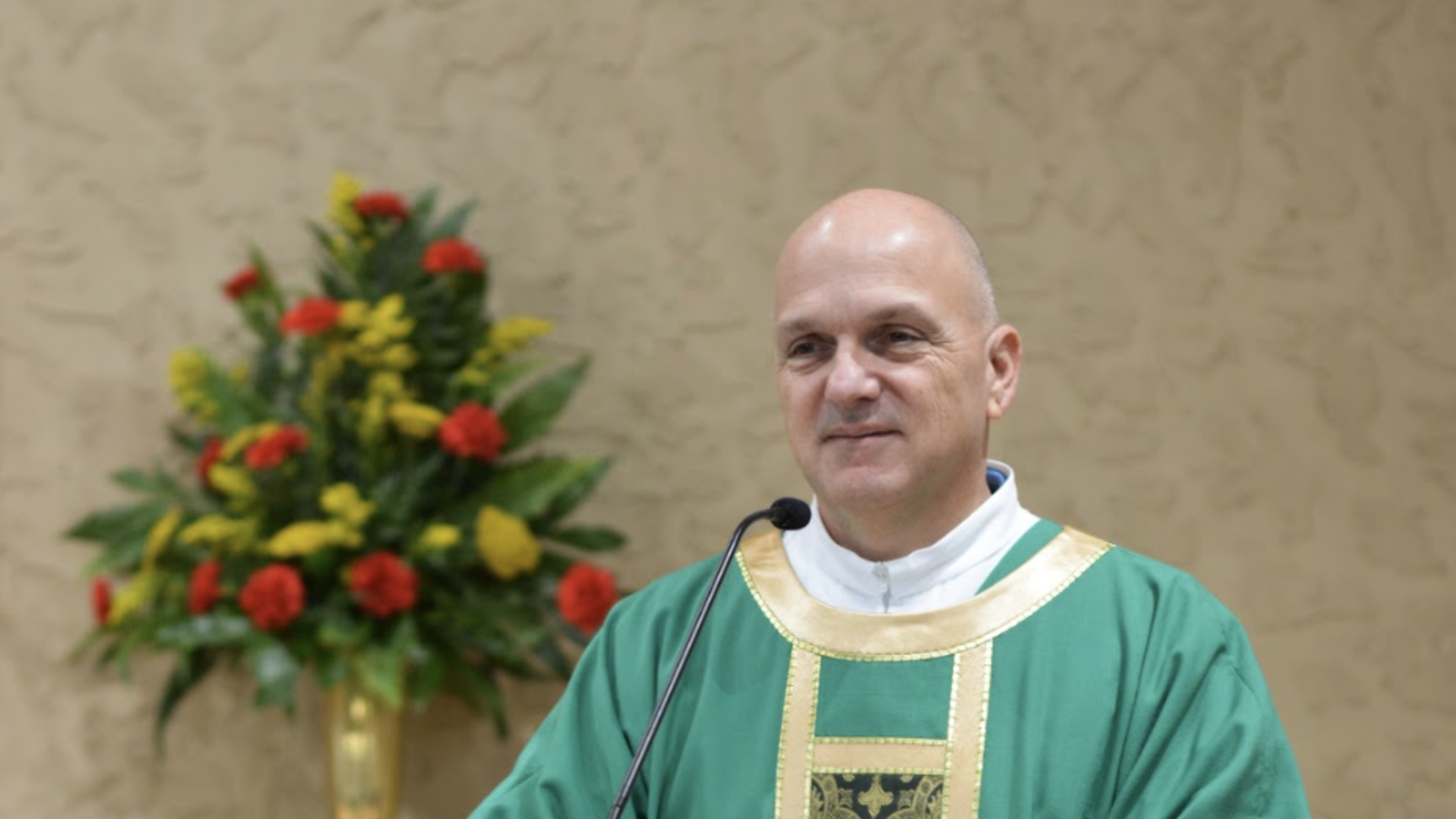
Jesus is the New Moses - when we follow him we not only comply with what is good but are transformed to be good.
Our Gospel today is from the Evangelical Discourse of Matthew – the heart of the Gospel. For Matthew, Jesus is the new Moses, the new lawgiver. This means when Jesus gives the Sermon on the Mount there is a parallel to Moses bringing the Ten Commandments down from Mt. Sinai.
At Sinai, God made a covenant with the Israelites: “I will be be your God and you will be my people.” In the Evangelical Discourse, Jesus is defining who are the people of God in the New Covenant. With the Beatitudes, Jesus says, Blessed and happy are the lowly, those who mourn, those who are lowly. How can the poor be blessed – or those who mourn – or those who despised by the world? When we are brought low we are totally dependent on God. There is a famous painting of the prodigal son by Rembrandt. The son is thin because where he fled to, the pigs were eating better than he was. His clothes are in tatters but the father is richly blessed because this symbolic that the father is rich in mercy. This is an image of the Beatitudes because only in the embrace of the Father are we truly rich – are we truly at home. In the Gospel from last week, Jesus says, “You are the salt of the earth, you are the light of the world.” The followers of Jesus are all missionaries, are all witnesses; this points to our parish mission statement: “Go make disciples.”
In our Gospel today, Jesus as the New Moses challenges us not only to be faithful to the Ten Commandments, but to surpass them. The Ten Commandments were given by God for Israel to demonstrate by their behavior that they are the faithful People of God; we can summarize the Commandments with the phrase: “Do no harm.” The New Law given by Jesus is to love one another as I have loved you.
Jesus reveals his power as lawgiver when he says, “You have heard these commandments, but I say to you.” In the first command in the Gospel of today, Jesus says, “You have heard it said, ‘Thou shalt not kill,” but I say to you do not grow angry with your brother or insult your sister.” This reminds me of when Billy Graham’s wife, Ruth, was asked if she ever considered divorcing the famous evangelist. Ruth said, “Divorce, no – murder, yes.” Jesus says it is not enough to constrain physical violence but to be transformed to treat others with love, patience, and kindness. Sr. Sandra Makowski has written a book, The Side of Kindness. She gives many examples of how it is easy to come down on the side of competition, cruelty, and contempt but we are called as Christians to come down on the side of kindness. Alison Blanchet, a contributor to the Catholic Miscellany said she complained angrily to a service provider that the windshield they had just replaced was leaking. The service manager patiently showed her that the leak was not from the windshield but from the skylight. Alison said the man witnessed to her because he could have returned her anger with contempt because she was in the wrong. Instead, the man showed her patience and kindness when he did not have to.
In our nation today, we’ve grown very divided, polarized, and rigid in our positions. The Gospel calls us to be a kinder, gentler nation.
Jesus says, “You have heard it said, ‘do not commit adultery,’ but I say to you, ‘Do not look lustfully at another because this is committing adultery in your heart.’” This is difficult because we are hard-wired to notice attractive people because this is how our species is propagated. This reminds us that we need self control and chastity as a Fruit of the Holy Spirit. We cannot control our attractions but the point is we need not board every ship that crosses our imagination. The traditional discipline is called “Custody of the Eyes.” Instead of feasting our eyes on a very attractive person we avert our eyes to avoid an occasion for sin. We can use the prayer from David in Psalm 51: “O God, create in me a clean heart, renew within me a steadfast spirit.” An interesting question is, “Can a person be lustful within marriage? St. John Paul II said, “yes.” John Paul said the opposite of love is not always hate but also using another for our purposes. If we use our spouse solely for our self gratification – then we are lustful.
Jesus says, “You have heard it said do not break an oath but I say to you do not make an oath.” Of course, Jesus is not commanding that we avoid an oath to tell the truth in a court of law. Jesus is saying do not invoke the name of the Lord in swearing a personal oath because we should be truthful people without an oath. Jesus calls us to be people of integrity – that our public face is the same as our private person. Jesus calls us to love the truth – a rare commodity in our world today. It seems there is no objective truth in our society - everything is spin on events unfolding in our culture. Let us be advocates for all that is good, true, beautiful and just in the world.
The Gospel invites us not only to comply with what is good but to become good – to be transformed. In the story, Beauty and the Beast, a wealthy prince is visited by an old woman who seeks lodging. The prince refuses the old hag even when she warns him not to be deceived by outward appearance. Then she reveals herself to be a beautiful enchantress and condemns him to become a hideous beast. Now his appearance matches the ugliness and cruelty of his soul. The prince will remain cursed until he learns to love and be loved. The Beast has a chance for redemption with the beautiful Belle, who comes to rescue her father who wandered onto the cursed estate of the prince. Through their encounter, Belle teaches the Beast to think of someone other than himself. The prince ultimately risks his life to save another – he has learned to love sacrificially. My dear brothers and sisters, let us be transformed in our encounter with the Lord, to learn to live for others, to grow to love as Christ has loved us.


